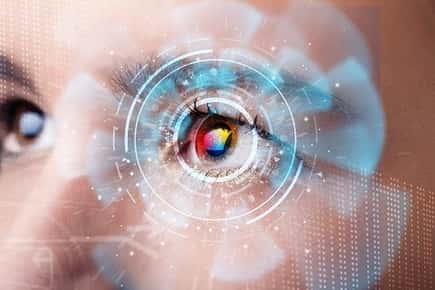
You may have heard the term "dilation" being used by your eye doctor or other patients who have had their eyes dilated during an exam. The dilation of your eyes is a very important part of a comprehensive examination because it helps your eye care provider get a clear picture of both your eye health and your overall well-being.
What Is Dilation?
To dilate your eyes, your eye doctor will use special eye drops that cause the pupils, or the black part in the middle of your eye, to become larger. Before you receive the dilating drops, the doctor will administer drops that numb your corneas and prevent the dilating drops from stinging or burning.
You will likely be asked to wait in your exam room or the waiting room while the medicine takes effect, and after about fifteen minutes your pupils should be fully dilated. During the dilated eye exam (also called a fundoscopy), your eye doctor will shine a bright light in your eyes and use a magnifying glass to see various parts of the back of your eye. Your eye care provider will ask you to look up, down, left and right while he or she performs the examination.
What Can an Eye Doctor See After My Eyes Are Dilated?
During a fundoscopy, your eye doctor will be able to see the inside of your eye entirely, including the macula (the center point of your vision), as well as the optic nerve that sends messages from your eyes to your brain. Your eye care provider will also look for signs of damage to the blood vessels in your eye caused by diabetes or high blood pressure, and examine the optic nerve for signs of glaucoma.
Other conditions that can be seen during a fundoscopy include macular degeneration, histoplasmosis, hypertensive retinopathy, retinal tears or detachments, and other potentially serious eye health conditions. If your eye doctor discovers any signs of eye health issues, he or she may order additional testing, make a referral to a specialist, or recommend treatments such as drops to reduce eye pressure.
Although having your eyes dilated can be inconvenient, it is virtually painless and can help your eye doctor spot health conditions that would have been missed without dilation.
Source:
Lee, Richard K., MD. "Fundoscopy." What Is the Importance of Fundoscopy?Eye Smart, 2 July 2012. Web. 02 Oct. 2014.